Embracing introversion proves challenging in a world that often praises extroversion. As an introvert, society frequently labels me as the ‘quiet,’ ‘shy,’ or ‘boring’ one. From the playground to the corporate office, their message is the same: you don’t belong here.
In this extroverted paradigm, society mistakes introversion for weakness. However, true strength lies not in the volume of my voice, but in the depth of my character, compassion, and self-awareness. Fed up with societal boxes, my journey towards self-acceptance has led me to find solace in my introverted identity, rise above the misguided labels, and recognize my inherent worth.
Navigating Introversion: Caged and Invisible
My introversion, misinterpreted as shyness or disinterest, has often left me feeling isolated and out of place. Society’s narrowed perceptions confine me to an invisible cage, storing me away, and bringing me out only for critiquing. In their eyes, I am a mere speck in their open sky—barely noticeable against the vastness of their expectations. Like a bird yearning to break free, I’ve struggled against the constraints of societal norms, seeking to spread my wings and soar beyond their limitations.
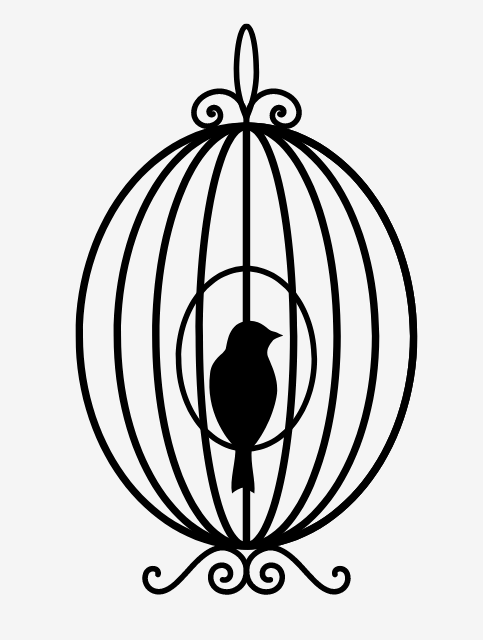
Introversion in Childhood and School
In school, I was the ‘quiet’ kid, immersed in books while struggling to find my place in a world that valued extroversion. The separation from society became more evident with group projects and participation grades, as if outspokenness equated to intelligence. The constant “why are you so quiet?” felt less like a question and more like an accusation, painting my introversion as a flaw rather than a facet of my identity.
Introversion in High School and College
High school and college intensified the message: you don’t belong here. The constant pressure to join clubs and groups, to network, and to conform further made me feel invisible. While I enjoyed learning and valued meaningful conversations, they liked drinking and preferred superficial dialogue. With these differences, they labeled me as ‘boring.’ I felt out of place in a society that thrived on surface-level interactions, hook-up culture, and social media.
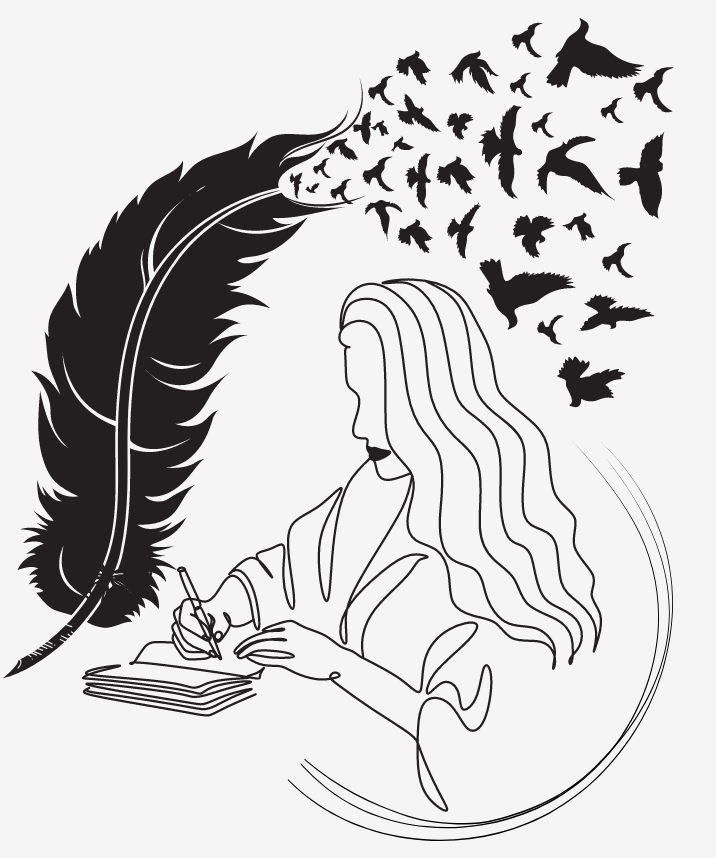
Amid the feeling of isolation, I found solace in writing, a form of expression where I could create my own reality. In these quiet moments of introspection, my thoughts took flight like birds escaping from their cages.
Corporate World: Literal and Metaphorical Constraints
Ironically, in my desire to break free from society’s boxes, I found myself confined to a literal one—the office cubicle. Here, the metaphorical boxes of societal expectations materialized, echoing the message again: you don’t belong here.
The confines of my cubicle, with its three walls and the fourth partially open, allowed the visitors to make their remarks and then separate themselves. Fluorescent lights taunted me, as if to say ‘put me in the spotlight’—make myself noticeable, but not seen. Likewise, cameras positioned above me made a spectacle of themselves, as if to say, ‘I’m watching you’… I am watching you, but I do not see you. I see your movements, your actions, your façade, but I don’t see you.
Dual monitors, another wall to hide behind, mimicked the two-faced people I’d come to know my entire life. The stands that held the monitors up were allusive to the stagnant and robotic movements and routines I had endured throughout every stage of my life. The cords ran to the power surge, fueling the two heads through the day. One cord was unplugged, and with it, its energy too, resembling my own mechanisms: sleep, work, repeat. The keyboard mocked me with its many letters, its potential to string words and sentences together using my 65 WPM hands, yet my mouth could not do the same.
In an environment that glorified extroverted norms, I struggled to find my voice, feeling unacknowledged and undervalued. Like a caged bird yearning for freedom, I felt trapped within the confines of cubicle walls and chained to societal biases against introverts.
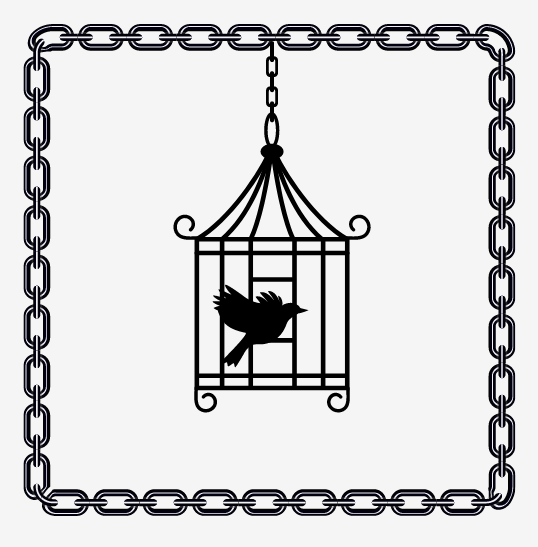
Personal Encounters with Corporate Bias
Bias against introverts stains the corporate world, evident in office politics, superficial small talk, and pointless meetings. Amid the office cubicle—a façade of personal space—the corporate world dismisses introverts. In fact, their buzzwords, like ‘culture’ and ‘collaboration’ scream ‘extroverts only.’
It didn’t take long to recognize these biases and feel out of place. In my first week at my ‘big-girl’ job out of college, my manager told me that people would think I was a ‘snob’ for being quiet. On a separate occasion, colleagues pressured me to join them for lunch, noting it was necessary to grow in my career (AKA climb the corporate ladder). Apparently, enjoying my 1 hour of solitude is unacceptable in the corporate world, as they equated it with lack of ambition or engagement.
Furthermore, the corporate world exerts pressure on introverts to conform to extroverted norms. Every Monday, it’s the same weekly small talk about weekend activities. As an introvert, I like being home, writing, and working out. Additionally, as someone who is paying for everything on her own—rent, bills, etc.—I choose not to waste my money on materialistic things. However, in the corporate world, if you don’t have some weekend travel story or night out with drinks, you are ‘weird’ and ‘antisocial.’
Their insensitive remarks and the expectation to engage in materialistic leisure activities highlight the misunderstanding of introverts and reinforce the familiar message: you don’t belong here.
Embracing Introversion: Self-Discovery and Self-Acceptance
In the face of their doubts and criticisms, I’ve developed resilience and self-discovery. Throughout my life, society constantly pressured me to change, act a certain way, and conform to extroverted ideals. However, I’ve learned to embrace my introverted nature, recognizing its inherent strengths and finding self-acceptance.

Strength in Introversion
Like a bird yearning to fly, I’ve spread my wings and soared beyond the confines of societal expectations, drawing strength from solitude and authenticity. Introversion fosters deep learning, creative thinking, and genuine empathy. Through introspection, I’ve gained profound insights into myself and others.
Moreover, I find solace in solitude, whether through writing, immersing myself in music, or working out at the gym. While initially challenging, navigating fitness as an introvert transformed the gym into a metaphor for life—a testament that strength comes from within. Through mental and physical growth, I’ve fostered resilience, gained self-confidence, and found empowerment in embracing my true self.
In this empowerment, I’ve learned that my quiet demeanor is not a flaw or a weakness. Rather, society, with its judgments, predefined boxes, and failure to accept differences, stands as the barrier to inclusivity and understanding.
Breaking Free from Societal Constraints
Society’s labels of ‘quiet’ and ‘shy’ do not define me. Moreover, they call me ‘boring,’ but I find strength and empowerment in solitude. Thriving on external validation, they lack individuality. Conversely, as an introvert, I possess a high level of self-awareness, allowing me to connect deeply with others, embrace my true self, and rise stronger. Like a phoenix rising from the ashes, I’ve transcended the constraints of societal norms, emerging as a symbol of resilience and personal growth.

Authenticity in Introversion: You Belong
To those who have felt the weight of societal labels, know that your worth is not measured by external validation but by inner strength. Your introverted nature is not a flaw to be corrected, but a strength to be celebrated. In a world that seeks to confine and categorize, breaking free from societal constraints and embracing authenticity are acts of rebellion. Your voice—whether spoken or silent—matters. So, embrace your introversion, rise above society’s labels, and most importantly, be unapologetically you. Remember: you belong, not in spite of your quietness, but because of it.
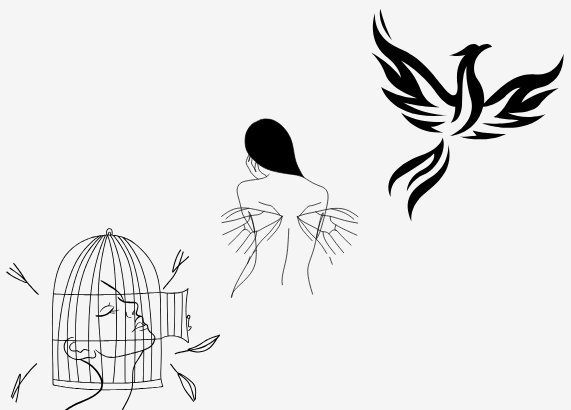

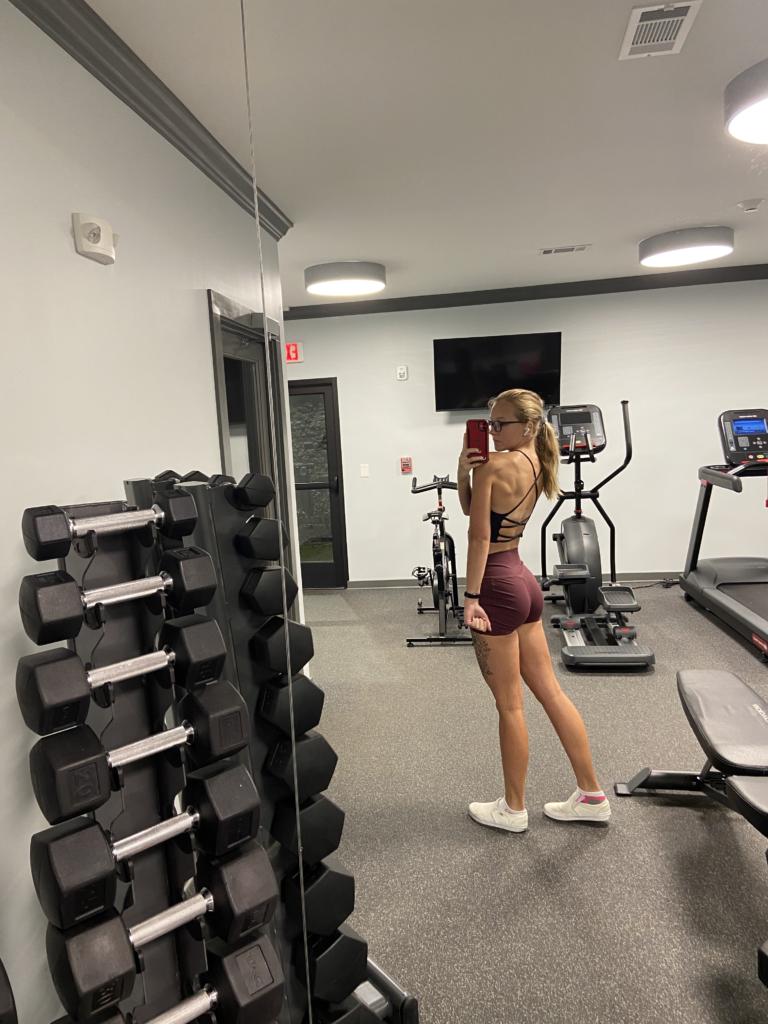
Pingback: Embracing Growth: From Silence to Strength - Breanna Williams
startup talky Pretty! This has been a really wonderful post. Many thanks for providing these details.
Thank you for reading!